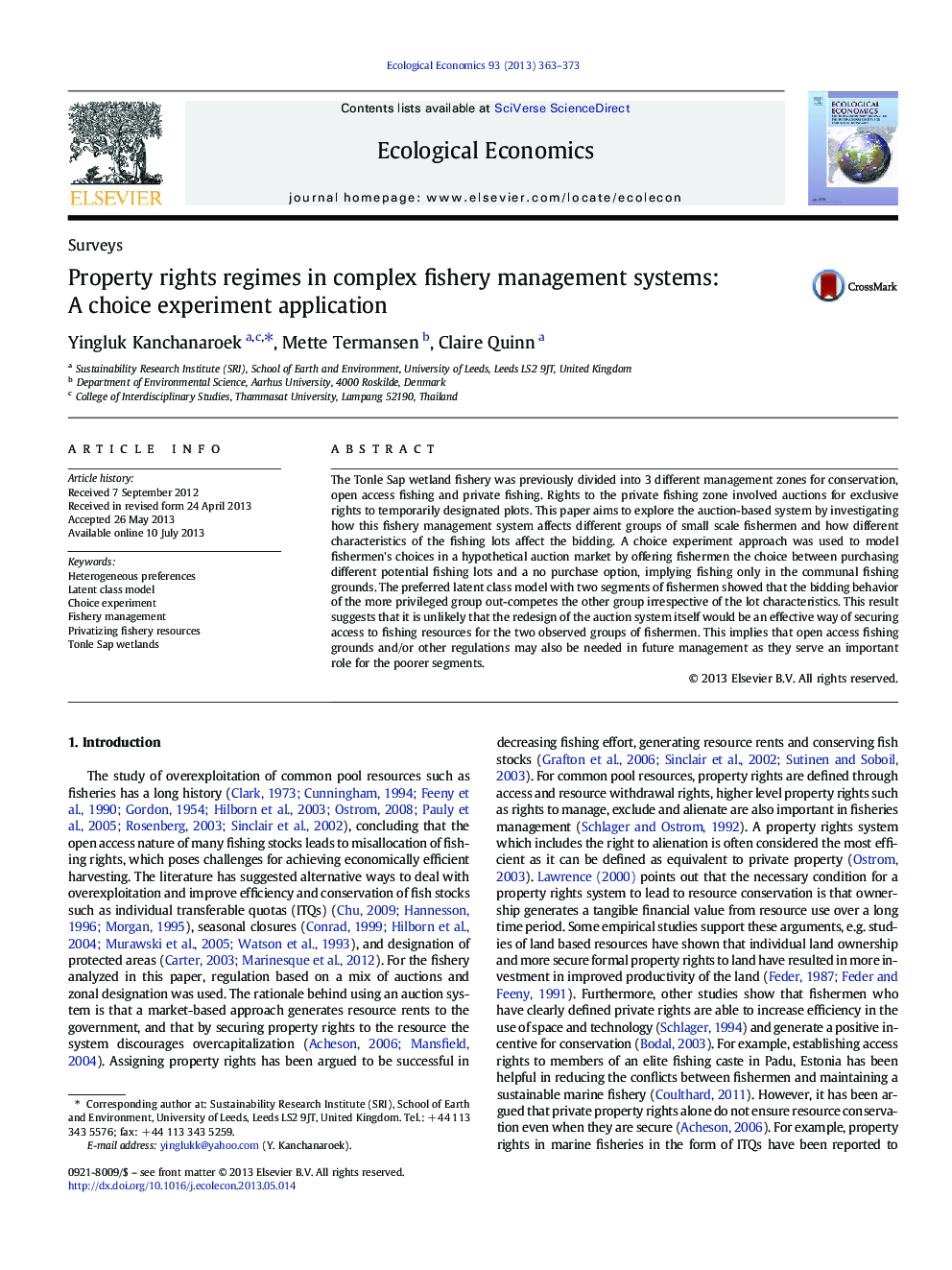| کد مقاله | کد نشریه | سال انتشار | مقاله انگلیسی | نسخه تمام متن |
|---|---|---|---|---|
| 5049936 | 1476386 | 2013 | 11 صفحه PDF | دانلود رایگان |
- Small scale fishermen were shown to be willing to bid for exclusive fishing rights.
- Flexible finance schemes were shown to increase the likelihood of participation in potential future auctions.
- Preferences for longer contracts suggest fishermen do consider long-term benefits over short-term gains.
- The analysis suggests that the fishing community consists of two segments.
- One segment of the small scale fishermen is unlikely to gain access to private fishing grounds under an auction system.
The Tonle Sap wetland fishery was previously divided into 3 different management zones for conservation, open access fishing and private fishing. Rights to the private fishing zone involved auctions for exclusive rights to temporarily designated plots. This paper aims to explore the auction-based system by investigating how this fishery management system affects different groups of small scale fishermen and how different characteristics of the fishing lots affect the bidding. A choice experiment approach was used to model fishermen's choices in a hypothetical auction market by offering fishermen the choice between purchasing different potential fishing lots and a no purchase option, implying fishing only in the communal fishing grounds. The preferred latent class model with two segments of fishermen showed that the bidding behavior of the more privileged group out-competes the other group irrespective of the lot characteristics. This result suggests that it is unlikely that the redesign of the auction system itself would be an effective way of securing access to fishing resources for the two observed groups of fishermen. This implies that open access fishing grounds and/or other regulations may also be needed in future management as they serve an important role for the poorer segments.
Journal: Ecological Economics - Volume 93, September 2013, Pages 363-373
